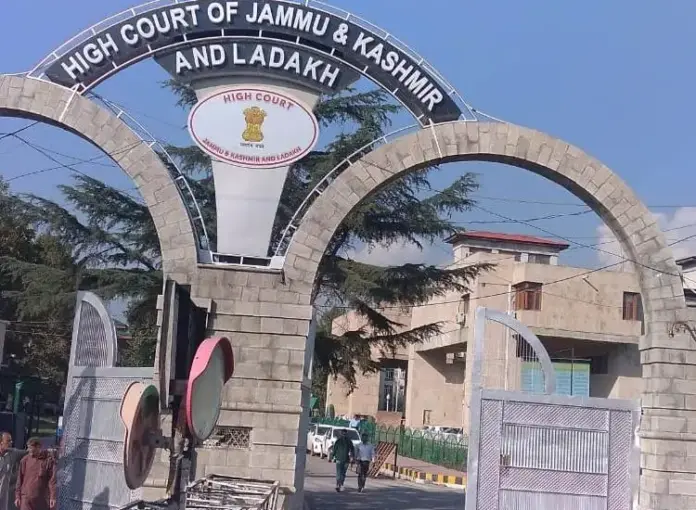Srinagar: The High Court of J&K and Ladakh court has held that mere discharge or quashing of a FIR by a competent court does not automatically result in the quashing of an Enforcement Case Information Report (ECIR) filed by Enforcement Directorate (ED) under the Prevention of Money Laundering Act (PMLA), 2002.
The judgment was delivered in a case filed by a 27-year-old Niket Kansal of Delhi against the ED. The petitioner, working as operational head of M/s N. K. Pharmaceuticals Pvt. Ltd is engaged in the marketing and transportation of the codeine-based cough syrup Cocrex.
He asserted “the respondent is engaging in his harassment through an egregious abuse of authority and misuse of power, driven by ulterior motives, by claiming that the property owned and possessed by him qualifies as ‘proceeds of crime’ as defined in Section 2 (1)(u) of the PMLA”.
The petitioner pleaded “a judgment/order rendered on 13.12.2024 by the trial court, the charges against him were dismissed on the basis that the purported articles do not constitute “manufactured drugs”, and hence, no offence under the NDPS was applicable.
“The petitioner has not obtained any property, directly or indirectly, from any criminal activity associated with a scheduled offence; hence, his prosecution, including unlawful search and seizure, is inadmissible and should be annulled as arbitrary and devoid of merit,” said his counsel, Sunil Sethi, (Sr. Advocate).
He argued “the money laundering procedures should end if a person is freed from the scheduled offence”.
He further asserted “PMLA proceedings are based on the scheduled crime. Under PMLA section 2(y) (1), a scheduled offence is one mentioned in the Schedule, which includes crime under other laws. Section 3 of PMLA defines money laundering as involving proceeds of crime from a scheduled offence”.
Justice Wasim Sadq Nargal after hearing the contending counsels held that the summons issued to the petitioner constitutes a procedural measure within the legal framework, and its validity persists itself, despite the petitioner’s discharge in the predicate offence.
The judge said “the mere discharge of the petitioner concerning the predicate offence does not, in itself grant the court the power to annul the summons”.
He referred to the ruling by the Supreme Court in Vijay Madanlal Choudhary & others, saying it is binding for all subordinate courts.
“Nonetheless, the implementation of the concepts established therein cannot be mechanical or abstract. The judgment must be applied with careful consideration of the specific factual context and legal matters unique to each case, necessitating a case-by-case analysis,” said Justice Nargal.
He said “mere discharge or quashing of a FIR by a competent court does not automatically result in the quashing of an Enforcement Case Information Report (ECIR) filed under the Prevention of Money Laundering Act, 2002”, adding “the two proceedings, while factually linked by the scheduled offence, are legally independent and governed separately”.
The bench made it clear that ECIR, pursuant to the PMLA, is not simply an extension of the FIR; rather, it is founded on the exclusive aim of investigating and prosecuting money laundering offences.
“The scheduled offence serves as the foundation for commencing action under the PMLA, whereas the offence of money laundering under Section 3 of the Act is a distinct and ongoing offence that must be evaluated independently”, it said.
“Consequently, the discharge in the predicate offence may influence the procedures under the PMLA; however, it cannot be regarded as an automatic or definitive basis for nullifying the ECIR”, continued the judgment.
“The decision to uphold or annul an ECIR”, it stated, “necessitates a detailed and fact-oriented examination, considering the stage of investigation, grounds for discharge, any challenges to the discharge order, evidence collected by the Enforcement Directorate, and the identification or tracing of proceeds of crime as defined in Section 2(1)(u) of the Act”.
The court also said that a mechanical or blanket approach in treating the discharge in a FIR as conclusive for the outcome of an ECIR would contradict the objectives and framework of the PMLA.
It could, in certain instances, undermine the legislative intent, which is to prevent, control, and prosecute money laundering offences that pose a significant threat to the financial systems and integrity of the nation the court said.
It held that the matter of nullifying an ECIR must be evaluated independently and on a case-by-case basis.













